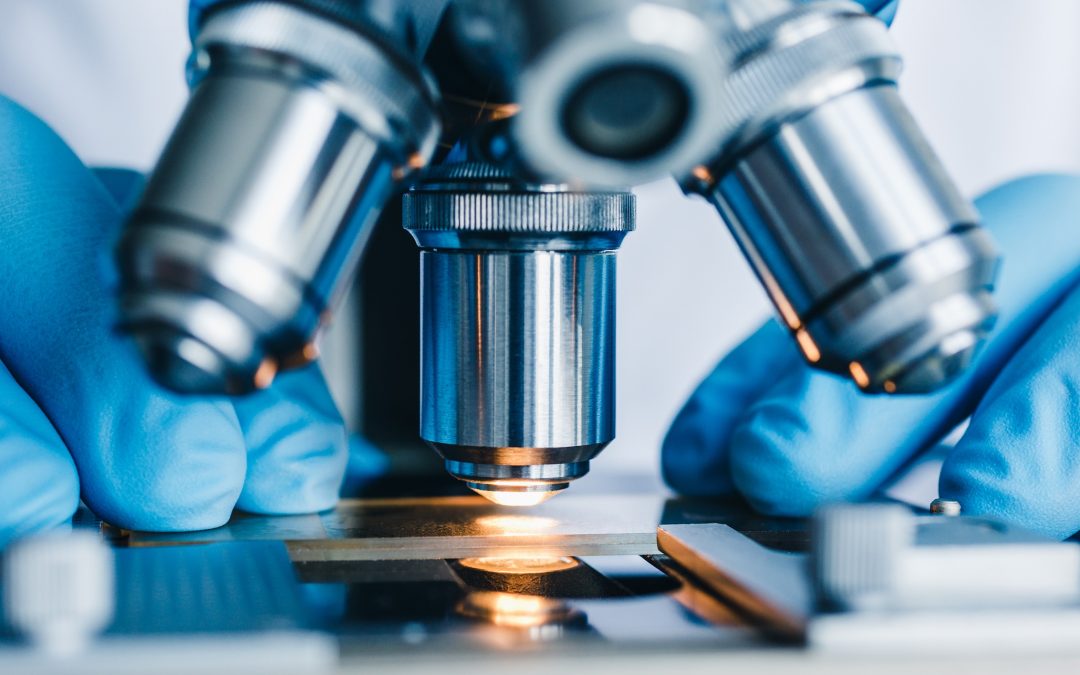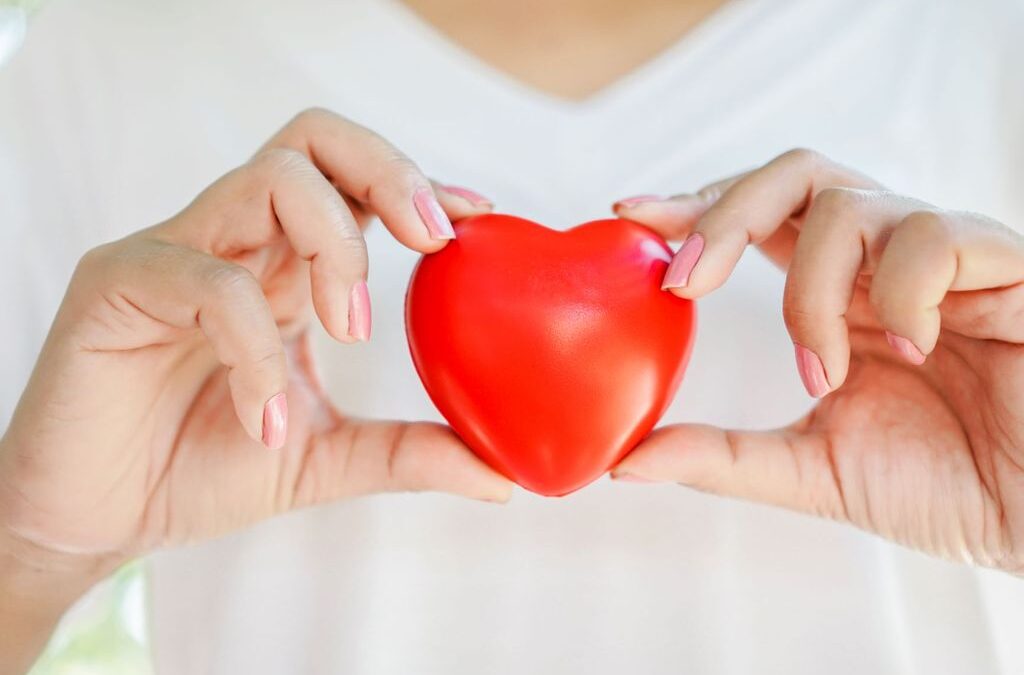AHCC and How It Can Help With Genital Warts

Recent studies show that AHCC may help the immune system clear persistent, high-risk HPV. These studies provide hope that AHCC may also help clear or prevent genital warts.
WHAT IS HPV?
HPV, or human papillomavirus, is the most common sexually transmitted infection (STI). According to the Centers for Disease Control, nearly 42 million people are currently infected with HPV in the United States. About 13 million people, including teens, become infected with HPV each year. In fact, most people who were never given the HPV vaccine and are sexually active will become infected with HPV at some point in their lives, usually between their late teens and early 20s. People of any gender and sexual orientation can get HPV.
While there are approximately 100 different strains of HPV, there are two main types. Strains of HPV that cause warts are called low-risk HPV and do not lead to cancer; they are non-oncogenic. High-risk strains of HPV, like HPV 16 and HPV 18, are oncogenic and can progress to cancer. High-risk HPV strains that may lead to cancer do not cause warts or have any symptoms. Therefore, many people do not know that they have high-risk HPV.
HOW DO PEOPLE CATCH HPV?
Like other STIs, HPV is mainly spread through vaginal, anal, and oral sex. It can also be spread through skin-to-skin contact. An infected person does not have to show symptoms to spread the virus, but they are more likely to spread low-risk HPV with active symptoms like genital warts.
HIGH-RISK HPV AND CANCER
Becoming infected with a cancer-causing strain of HPV does not mean you will definitely get cancer only that you are at risk for developing cancer later in life if your immune system cannot effectively clear the infection. Cancer can develop from high-risk HPV many years, even decades, after first being infected. High-risk HPV is associated with the following six types of cancer:
- cervical cancer
- anal cancer
- vaginal cancer
- oropharyngeal cancer (cancer of the back of the throat)
- vulvar cancer
- penile cancer
WHAT ARE GENITAL WARTS?
So, the good news for anyone experiencing HPV-induced genital warts is that the strains of HPV that cause warts cannot cause cancer. Strains of HPV are either wart-causing OR cancer-causing: there is no overlap. Genital warts are very common. At any given time, about 1 in 100 sexually active adults is experiencing genital warts. Genital warts are small bumps that occur in the genital area. These bumps can be isolated or occur in groups. They can also be flat or raised, or even shaped like cauliflower.
You most likely will be able to self-diagnose genital warts, as they have a generally distinct appearance, but it is best to have this diagnosis confirmed by a healthcare professional, who can also help you with treatment. Though genital warts are not very pleasant to experience and may be accompanied by annoying itchiness, they pose no severe threat to your body and overall health. It is important to remember, however, that you are more likely to spread HPV when you have active symptoms, such as genital warts. If you are concerned you have genital warts you should get tested, develop a treatment plan with your doctor, and avoid having sexual intercourse until you are completely treated.
HOW CAN PEOPLE AVOID CATCHING HPV?
The best way to avoid getting HPV is to get vaccinated against HPV. Vaccination is the most effective way to protect yourself from cancer causing high-risk strains of HPV and from some low-risk strains that cause warts. The CDC recommends that boys and girls get vaccinated at age 11 or 12. Children can even get vaccinated earlier, at age 9. Adults can get vaccinated through age 26 but should discuss vaccination with a doctor if they are between ages 26 and 45. The vaccine is also recommended for immunocompromised people who are at a greater risk for developing cancer from high-risk strains.
In addition, people who have genital warts should refrain from any form of intercourse until treated. It is also recommended you use latex condoms and/or dental dams every time you have vaginal, oral, or anal sex. Even though condoms and dental dams are not as effective against HPV as they are against HIV, chlamydia, herpes, and other sexually transmitted diseases, they can reduce your chances of getting the virus. Being in a mutually monogamous relationship also reduces the risk of being infected with HPV.
IS THERE A TEST FOR HPV?
Women 21 and over are recommended to get annual gynecological exams and Pap smears that screen for cervical cancer and cotest for HPV . Regular Pap tests help identify precancerous and cancerous cells early. Precancerous cells can be treated to prevent progression to cancer, and it is always best to catch cancer as early as possible.
Unfortunately, there is currently no definitive test for high-risk HPV in men, but doctors can screen men for HPV-related cancers.
Genital warts can be diagnosed by a doctor who may also take a sample from the wart for further testing. Your doctor can prescribe a medication (typically a cream) to alleviate symptoms.
WHAT DOES AHCC DO?
AHCC is derived from the roots of healing mushrooms. It has antioxidant and immunomodulatory properties and is responsible for enhancing the immune system of individuals both healthy and not. AHCC is able to:
- Promote white blood cell production
- Maintain optimal natural killer (NK) cell activity
- Enhance cytokine production
- Increase the number and activity of dendritic cells
- Promote T cell and macrophage activity
- Calm the digestive tract, an important facet of the immune system
Finally, AHCC plays a role in enhancing both the innate immune system, which is the first to respond to and identify any threat to the body and the adaptive immune system, which launches a specific response against a threat. As a result of these many benefits, researchers have studied how AHCC can help those experiencing persistent HPV infections. Most of these studies are extremely promising.
AHCC AND HPV: WHAT RESEARCH SHOWS
Judith A. Smith, of the University of Texas, studied the ability of AHCC to support the immune system to clear persistent high-risk HPV infections in a phase II clinical trial.
Forty-one women with persistent HPV lasting for more than two years enrolled in the study. In the arm of the study where women were given 3 g a day of AHCC on an empty stomach for six months, 63.6% of the patients had cleared their HPV infection after six months. However, in the control group that was not given AHCC, only 10.5% of women had cleared their HPV infection. These results are very promising!
CAN AHCC CLEAR OR PREVENT GENITAL WARTS?
Since the most current research shows that AHCC is effective at helping the immune system clear high-risk HPV infections, there is reason to believe that AHCC may also help clear the low-risk strains of HPV that cause genital warts.
AHCC IS UNIQUE
AHCC is different from other medicinal mushrooms because it has been specially developed and processed to maximize its immune-boosting capacity. AHCC is made by cell culturing a specific subspecies of mushroom identified by Japanese scientists several decades ago to have the greatest ability to increase natural killer cell activity. Its molecular weight has been reduced using a patented enzymatic process to improve its absorption and clinical efficacy. Every batch of AHCC is subjected to DNA pattern testing to confirm its identity (in other words, to ensure it is genuine AHCC). These innovations make AHCC unique among medicinal mushrooms. AHCC is the only medicinal mushroom that has been clinically demonstrated to help eradicate HPV.
AHCC is available from multiple nutritional supplement companies, but it is important to steer clear of fake products using different names yet claiming similar benefits. Only genuine AHCC has been clinically tested and found to help clear HPV. A complete list of authentic AHCC can be found here.
Sources
- https://www.cdc.gov/std/hpv/stdfact-hpv.htm
- https://www.ahcc.net/blogs/news/ahcc-natural-treatment-hpv
- http://naprecis.com/2018/01/12/health-news-two-pilot-clinical-studies-show-promising-results-ahcc-mushroom-extract-may-eradicate-recurrent-hpv-infections-women/
- https://www.ahcc.net/blogs/news/must-know-hpv
- https://www.plannedparenthood.org/learn/stds-hiv-safer-sex/genital-warts
- https://www.ahcc.net/blogs/news/learn-the-facts-on-ahcc
- https://www.cdc.gov/cancer/hpv/basic_info/index.htm
- https://www.frontiersin.org/articles/10.3389/fonc.2022.881902/full


